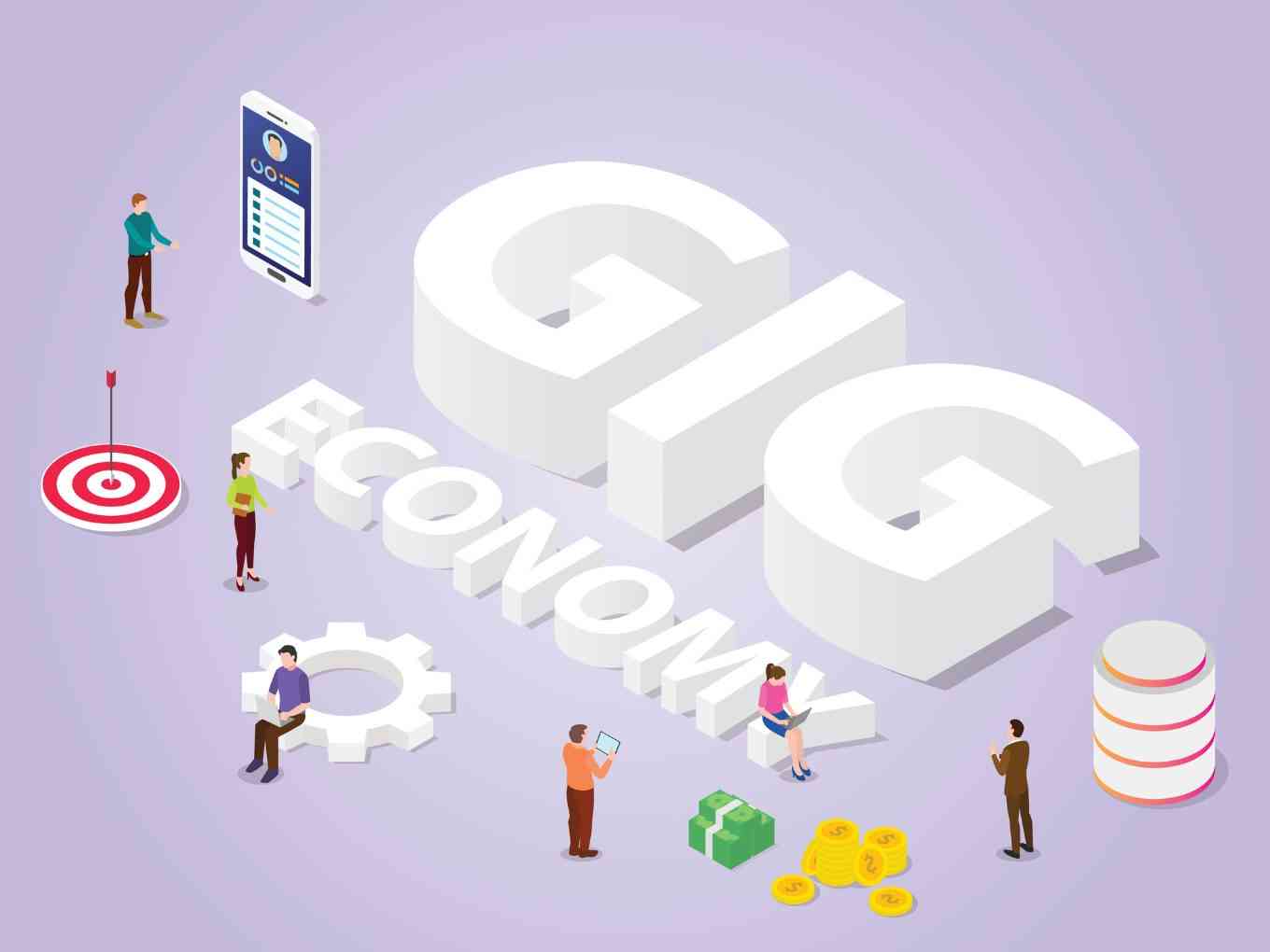
THE gig economy, once a niche market, has experienced exponential growth in recent years.
When we consider the future of work in Africa, the question shouldn’t be whether jobs will be formal or informal, but how digital platforms and new technologies might make this type of work more productive and of a better quality for workers themselves.
We don’t doubt that this future is now with the rise of polygamous work arrangements, short-term contracts or freelance work as opposed to permanent jobs.
What is gig economy and gig workers?
Gig economy is a labour market characterised by the prevalence of short-term contracts or freelance work as opposed to permanent jobs.
The gig economy is based on flexible, temporary or freelance jobs, often involving connecting with clients or customers through an online platform.
Gig workers are independent contractors, online platform workers, contract firm workers, on-call workers, and temporary workers. Gig workers enter into formal agreements with an on-demand company to provide services to the company’s clients. Online gig work could provide people in low and middle-income countries an additional path out of poverty.
The rise of globalisation and the increasing prevalence of remote work have opened new opportunities for gig workers.
- Beware of fake nurse aide certificates, says ZRCS
- Beware of fake nurse aide certificates, says ZRCS
- Currency crisis alarms business
- Red Cross vaccination go into overdrive
Keep Reading
Digital connectivity has allowed businesses to access talent globally, while workers can offer their services to clients and companies beyond their immediate geographic location.
This expanded reach has contributed to the gig economy’s expansion and created a more interconnected and borderless job market.
What exactly are polygamous work arrangements?
If you are familiar with polygamy in a romantic context, then the term “polygamous work” is self-explanatory.
Employees generate income through an assortment of jobs and projects, rather than growing their career with one employer at a time.
The trend towards polygamous careers has been quietly gaining traction in Zimbabwe where various people got employed for two companies from different continents working different times. This works for jobs that can be done remotely and for those that cannot be done.
Embracing the gig economy model
The gig economy has become a prominent feature of our modern work landscape.
The advent of digital platforms and technology has facilitated the growth of this alternative employment model. From ride-sharing services to freelance marketplaces, the gig economy offers individuals the flexibility to choose when, where and how they work and it should be embraced.
To remain competitive in the age of the gig economy, businesses must be willing to adapt their organisational structures and processes to accommodate gig workers.
This includes creating an inclusive and flexible work environment, investing in digital tools and platforms to facilitate remote work, and developing new approaches to talent management that account for the unique needs and expectations of gig workers.
Developing future-proof skills and competencies
The most valuable asset in today’s and tomorrow’s economy is human capital, and organisations invest in reskilling and upskilling their workforce. To meet the rapid expansion of the business, the organisation requires an extensive workforce with the right capabilities.
For workers, the gig economy demands a focus on developing transferable, future-proof skills and competencies. This includes technical skills such as digital literacy and data analytics, as well as soft skills, such as communication, adaptability and problem solving.
Workers must also be prepared to engage in continuous learning and professional development to remain competitive in an ever-evolving marketplace.
Fostering a culture of collaboration and innovation
The ability to connect and collaborate with a global network fosters innovation and allows us to tap into expertise we might not have accessed. A collaborative and inclusive work culture encourages knowledge sharing, teamwork, and camaraderie, which leads to a sense of belong to employees.
Businesses and workers alike can benefit from embracing a culture of collaboration and innovation in the gig economy. By leveraging diverse skills and perspectives, businesses can unlock new opportunities for growth and value creation, while workers can expand their professional networks and access a wider range of opportunities.
This requires a mindset shift that embraces flexibility, adaptability, and a willingness to challenge traditional norms and assumptions.
Investing in Digital Infrastructure
The gig economy has irrevocably altered the workforce landscape, creating both challenges and opportunities for businesses, workers, and policymakers.
The gig economy is heavily reliant on digital platforms and tools to facilitate remote work and collaboration.
As such, businesses, governments, and workers must prioritise investments in digital infrastructure to ensure that they can fully capitalise on the opportunities presented by the gig economy.
This includes ensuring access to high-speed internet, developing digital skills training programs, and promoting digital innovation and entrepreneurship.
The benefits and challenges of the gig economy
It’s a fact that workers, engaging in gigs provides increased autonomy and control over their careers.
They have the freedom to select projects or gigs that align with their skills, interests and schedules.
This flexibility allows individuals to pursue multiple income streams, explore their passions, and achieve a better work-life balance.
Employers also benefit from embracing the gig economy. They gain access to a diverse pool of talent with specialised skills, often at a lower cost compared to hiring full-time employees.
This flexibility enables businesses to adapt quickly to changing market demands, scale their workforce as needed, and tap into a global talent pool.
There are certainly challenges associated with the gig economy. For workers, the absence of traditional employee benefits such as healthcare, retirement plans, and job security can be concerning.
Gig workers often face unpredictable income, lack of legal protections, and difficulty in accessing traditional forms of credit or loans.
Moreover, the gig economy can exacerbate income inequality and contribute to the erosion of labour rights if not regulated properly.
It is no secret that the desires and expectations of the workforce have drastically shifted in recent years — and they will continue to evolve.
Employers who knuckle down on archaic approaches and practices will struggle to hire and retain talent as workers seek out organisations that are better equipped to support and even fuel their multifaceted interests and passions.
Emmanuel Zvada is a human capital consultant and international recruitment expert











